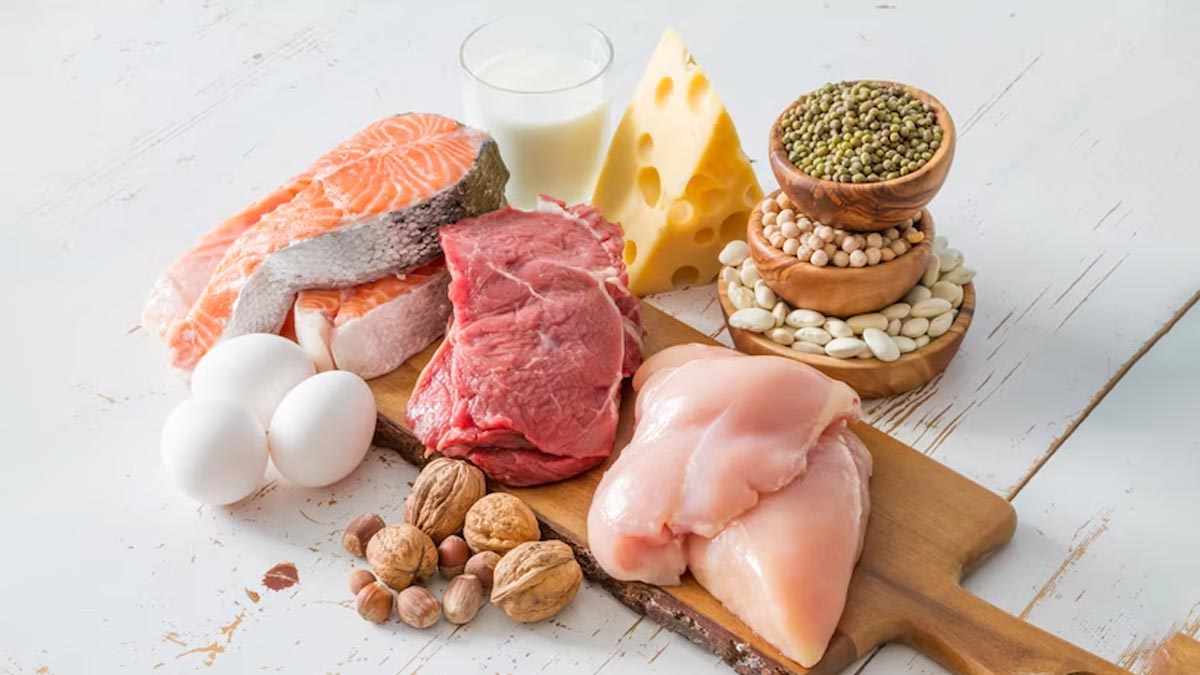
So here is one of the most debatable topics amongst all fitness enthusiasts and nutritionists worldwide. When meeting your daily protein requirements, eating protein-rich foods and drinking protein supplements can be effective. However, the choice between the two depends on individual goals, preferences, and dietary restrictions.
We spoke to Archi Garg, Nutritionist at Chicnutrix, who shared her expert opinion to help you make the right choice.
Things To Keep In Mind

Average Daily Requirement
It is important to understand the average daily protein requirement for every individual. Protein in any form, whether natural or artificial, is essential to carry out normal body functions. The daily need for protein may vary according to age, weight, gender, and level of physical activity. Still, it ranges between 46-63 grams for adults and 65 grams for pregnant and lactating females.
Nutritional Profile
Natural protein sources and protein supplements (powders, juices & shakes) are complete proteins; however, the rest of their nutritional profile is entirely different. Protein supplements are single isolated macronutrients. They provide 18-25 grams of protein, no fat, minimal carbohydrate and no vitamins and minerals, as they are all processed. However, nature does not provide protein or, in fact, any macro or micronutrient in isolation, which in itself is a blessing.
Also Read: Slow Recovery To Skin Problems: Know The Major Signs Of Protein Deficiency
Natural Proteins
Natural proteins, even unprocessed, contain a balanced blend of macro (proteins & fats) & micro (vitamins & minerals) nutrients. These nutrients work together to keep the body functional, ensuring all the dietary requirements are met at all levels simultaneously. It packs protein with required good fats, vitamins and minerals to build muscles while repairing tissues, maintaining weight, and keeping a check on body fat, thus maintaining overall health. However, sometimes they may not provide all essential amino acids. Also, some natural protein sources are animal-based and might not be suitable for vegetarians and vegan people.

Protein Supplements
All protein supplements are artificial sources, providing all essential amino acids in the required quantity. Protein is easy to absorb and digest in liquid forms, such as protein juices. Also, these protein supplements are more convenient and instant to consume, thus playing the role of a go-to meal. However, most protein supplements contain artificial colours and preservatives, which harm the body. Long-term use of protein supplements can also pose certain health challenges like digestion issues, nausea, bloating, etc. Hence, choosing protein supplements from a certified and trusted brand is essential.
Also Read: Protein Supplements: Debunking The Top Myths
Which Is Better?
While most people believe that protein supplements only help in gaining muscles, it is less known that they also help in fulfilling daily protein intake. Protein supplements may not necessarily be required for everyone but can be helpful in certain situations where it may be challenging to meet your daily protein requirements through food alone. It seems more convenient and lucrative to use protein supplements as it doesn't include much effort, especially when you're on the go or need more time to prepare a protein-rich meal. Although it is always advisable to use natural protein sources to maintain weight, build muscle, or stay healthy. We can achieve all our fitness goals and maintain great health by choosing a balanced diet of protein-rich foods.







